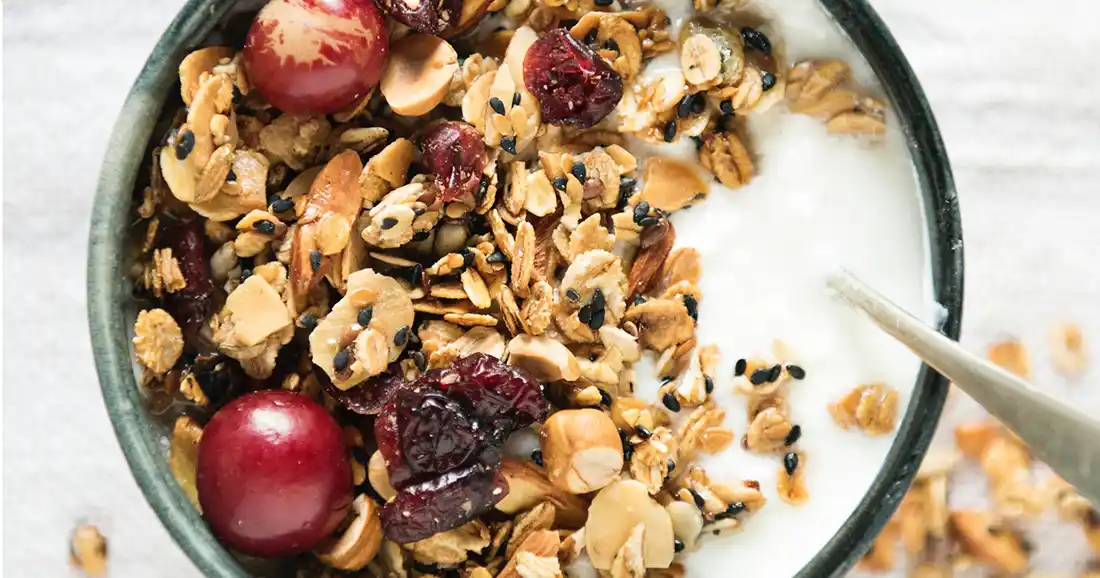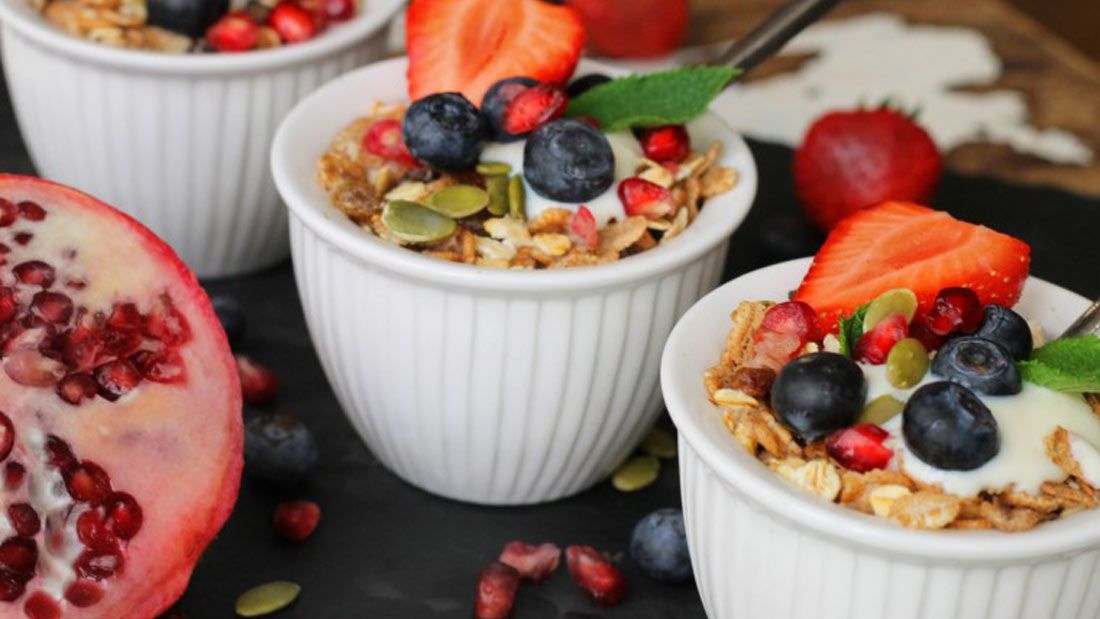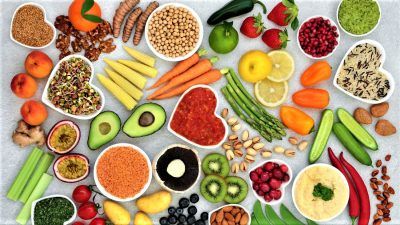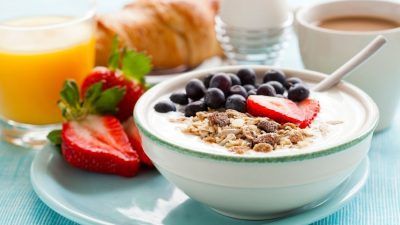Oats

Oats are, quite simply, amazing. This humble grain has so many nutrients and health benefits that if there ever was a superfood, oats are it!
Native to the Near East and Europe, oats are easy to grow across most of Europe and North America, even in northern regions where other crops struggle. This makes them a superb and super-sustainable crop.
Oats Nutritional Value
| Nutrient | Amount per 100g of oats (% of recommended daily intake) |
|---|---|
| Protein | 16.9g (34%) |
| Total fat | 6.9g (11%) |
| Saturated fat | 1.2g (6%) |
| Monounsaturated fat | 2.2g |
| Polyunsaturated fat | 2.5g |
| Carbohydrates | 66.3g (22%) |
| Sugars | 0 |
| Fibre | 10.6g (42%) |
| Thiamin (Vitamin B1) | 0.8mg (51%) |
| Riboflavin (B2) | 0.1mg (8%) |
| Folic acid (B9) | 56μg (14%) |
| Pantothenic acid (B5) | 1.3μg (13%) |
| Calcium | 54mg (5%) |
| Iron | 4.7mg (26%) |
| Magnesium | 177mg (44%) |
| Potassium | 429mg (12%) |
| Zinc | 4.0mg (26%) |
| Copper | 0.6mg (31%) |
| Manganese | 4.9mg (246%) |
An average portion of muesli is 50 grams but many of us are more generous. Depending on how many other ingredients there are, muesli tends to be 60 to 80 per cent oats.
Oats are a great source of healthy carbohydrates, including fibre, are low in fat and, perhaps surprisingly, high in protein. They pack a good bunch of vitamins and minerals too – several B vitamins, iron, magnesium, potassium, zinc, copper and manganese.

Protein Specialists
With protein content ranging from 12 to 24 per cent, oats are the protein champions among grains. They contain a high-quality protein called avenalin, found only in oats, which is similar to bean proteins. If you’d never thought of oats as a protein source, think again, they’re an excellent one!
Oats also contain small amounts of another protein, avenin, related to gluten in wheat but most people with gluten intolerance are able to digest it without a problem. Therefore oats are considered safe for coeliacs but they can be contaminated by other grains, such as wheat, so some companies label their oats ‘gluten-free’ to assure gluten-sensitive people of no cross-contamination.
Carb Heroes
Oats contain both soluble and insoluble fibre – essential for a healthy digestive system and important for effective sugar and fat metabolism. The soluble fibre in oats is unique in that it includes beta-glucans – a type of soluble fibre that absorbs significant amounts of water and forms a soft gel. This slows down the speed of digestion so oats can give you long-lasting energy.
Regular consumption of fibre and oat beta-glucans in particular, is known to reduce cholesterol levels, help regulate blood sugar levels and aid healthy weight management.
Oat magic
Apart from the fact that an oat-based breakfast nicely bumps up your iron and zinc intake, your bowl of oaty goodness will also contain natural compounds called avenanthramides. These are powerful antioxidants with anti-inflammatory properties and can calm irritation and itching. So, eating oats can help with a number of inflammatory conditions whilst using skin products with oat extract can make your skin happy!
Jumbo, porridge or quick?
Oats are incredibly versatile because of their neutral flavour. Although the first thing that springs to mind is breakfast, oats are also widely used in savoury cooking and baking because of their binding properties. This is thanks to the special soluble fibre mentioned above – it forms a viscous gel which helps to stick things together, whether you’re making bean-burgers or biscuits.
There are a few different types of oats:
- rolled – oats that have been steamed and rolled into flakes (jumbo oats, muesli, granola)
- crushed – a similar process to rolled oats but crushed into smaller pieces (quick oats, porridge oats, instant oats, oatmeal, oatcakes, flapjacks)
- ground – as above but then ground into flour (oat flour)
The more the grain is chopped, the faster it’s digested – so whole rolled (jumbo) oats are the best option for sustained energy and overall health. However, all oat products count as wholegrain because no matter how finely you grind the grain, you’ll still retain all the nutrients.
So all oats are healthy?
Well…not all products made with oats are equal. A prime example would be flapjacks – they are usually made with so much fat and sugar that they warrant a health warning. One bar can pack 25 grams of fat and 30 grams of sugar! You can, of course, make healthier versions at home (mashed bananas and a spoonful of nut butter substitute for the fats, whilst dried fruit sweetens the deal). And it’s a similar story with granola – a lot of the recipes contain far too much fat and sugar.
Natural muesli is always a healthy choice, whether you buy it or make it yourself (and save a lot of money in the process) and so is porridge made with plant milk and sweetened with fresh or dried fruit.
Oat biscuits and oat cakes can be a nice treat or snack on the go but again, check the fat content – brands vary a lot! These biscuit-type products always contain some fat but can be a healthier alternative to flapjacks.
If you’re looking for something to add substance to your food, oats or oat flour can do just that and boost your nutrient intake at the same time. They are a great ingredient for veggie burgers, almost any sweet or savoury bake, smoothies, desserts and, of course, there’s also oat milk.
Oat milk has received some criticism in the press, read more about that here.
Crop of the future
Oats are among the healthiest and most sustainable crops in Europe. With their wide use and nutritional benefits, there’s almost no limit to their use so why not try adding them to pancakes, soups or even curry?







